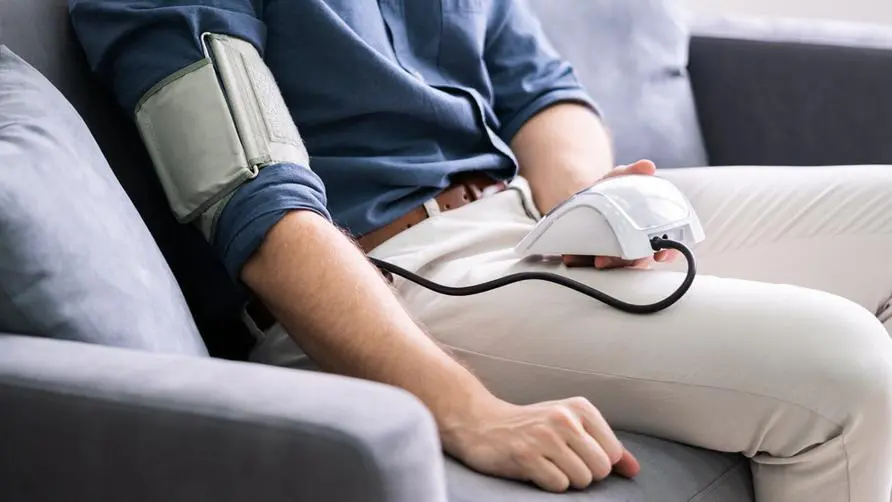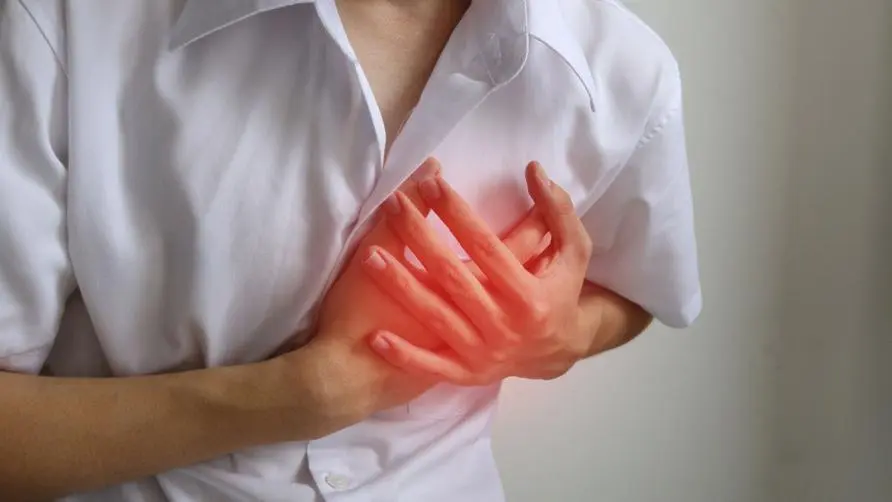If sleep apnea is not treated, the consequences are not just heart stents? Doctor: Fear of blood vessel blockage throughout the body!

Obstructive sleep apnea is closely related to cardiovascular disease, easily causing atherosclerosis and increasing the risk of acute myocardial ischemia. Dr. Zhuang Libang of the Sleep Center of Linkou Chang Gung Memorial Hospital recently treated a patient who was transferred from a cardiologist. This 55-year-old man is a factory owner. He was admitted to the emergency room for acute myocardial infarction and underwent emergency cardiac catheterization surgery. A life.
When I was admitted to the cardiology intensive care unit after surgery, the nurse discovered that I was snoring loudly at night, even apnea, and losing blood oxygen. Therefore, I was transferred to the sleep center for a multi-channel sleep test, and it was found that I had severe obstructive sleep apnea. In ataxia, the lowest blood oxygen level may even drop to 53% while sleeping. Later, after I started using the sleep positive pressure respirator treatment, my hypertension condition improved significantly, and the hardness of blood vessels throughout my body also became better.
Lack of oxygen in the body seriously harms cardiovascular health
Dr. Zhuang Libang explained that cardiac stents are usually used to treat blocked cardiovascular systems and help restore normal blood flow. However, the public often overlooks sleep apnea as an important risk factor for cardiovascular obstruction.
Sleep apnea patients experience repeated interruptions in breathing due to temporary collapse of the upper airway, resulting in a lack of oxygen in the body. Long-term body hypoxia will increase inflammation, promote protein accumulation, make blood more viscous, and deposit atherosclerotic plaques to thicken the intima of blood vessels, thereby blocking blood vessels and preventing blood from flowing. If it occurs in the heart, it will cause angina pectoris, Myocardial infarction and other problems. If this is coupled with hundreds of awakenings during the night due to interrupted breathing, preventing the patient from entering the restorative deep sleep stage, it will form an extremely vicious cycle.
Hypoxia may cause blockage of blood vessels throughout the body
Dr. Zhuang Libang further explained that once the body is deprived of oxygen, it will cause systemic damage, not just the heart. Taking the arteries responsible for transporting oxygen as an example, if the obstruction occurs in the “carotid artery”, it will cause cerebral ischemia and stroke; if it occurs in the “coronary artery of the heart”, it will cause myocardial infarction; if it occurs in the “thoracic aortic aneurysm and abdominal aortic aneurysm” “Aneurysm” may rupture, causing the patient to bleed massively and face the risk of death.
Don’t neglect other parts of the body, because vascular stenosis and obstruction of the “peripheral arteries” superficial femoral artery or intestinal femoral artery will lead to chronic or acute ischemic symptoms in the lower limbs, intermittent claudication, painful necrosis, and even the need for amputation.
Common treatments for sleep apnea
Technician Hong Xiaojing of Colin Sleeping Beauty, who has practiced in hospitals for many years, said that there are four common treatment methods for sleep apnea:
Positive pressure respirator: Provides continuous positive pressure airflow to keep the respiratory tract open, reduce respiratory arrest, and avoid lowering blood oxygen concentration.
Oral appliance: It can keep the jaw and tongue forward and prevent the tongue from blocking the airway.
Surgical treatment: including suspensory velopharyngoplasty, laser snoring surgery, etc.
Others: weight loss, posture therapy, avoiding sleeping and drinking, etc.
Doctors will diagnose the patient’s needs and give treatment recommendations. Positive pressure respirators are usually the most common method. If the public is worried that positive pressure respirators may cause respiratory discomfort, it is recommended that the public choose the appropriate instrument and mask after comparison and actual experience to increase comfort and continue to improve health.
There is still a risk of re-clogging after the stent is installed
Many people mistakenly believe that the blocked blood vessel can be cured once and for all after installing a stent. However, they do not know that if the blocking factor is not removed, it may still cause blood vessel embolism again. Dr. Zhuang Libang specially reminds patients with heart disease who have symptoms such as chronic fatigue, daytime sleepiness, nocturia, snoring, etc. They can conduct sleep examinations to understand their risk of sleep apnea, so as to detect and treat them early. If you are confirmed to have sleep apnea, you must actively receive treatment to avoid regrets.
Further reading:





